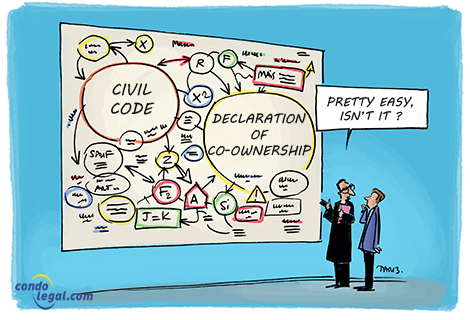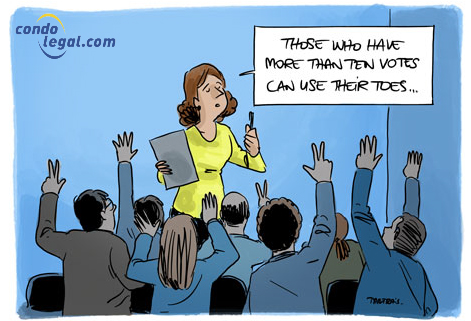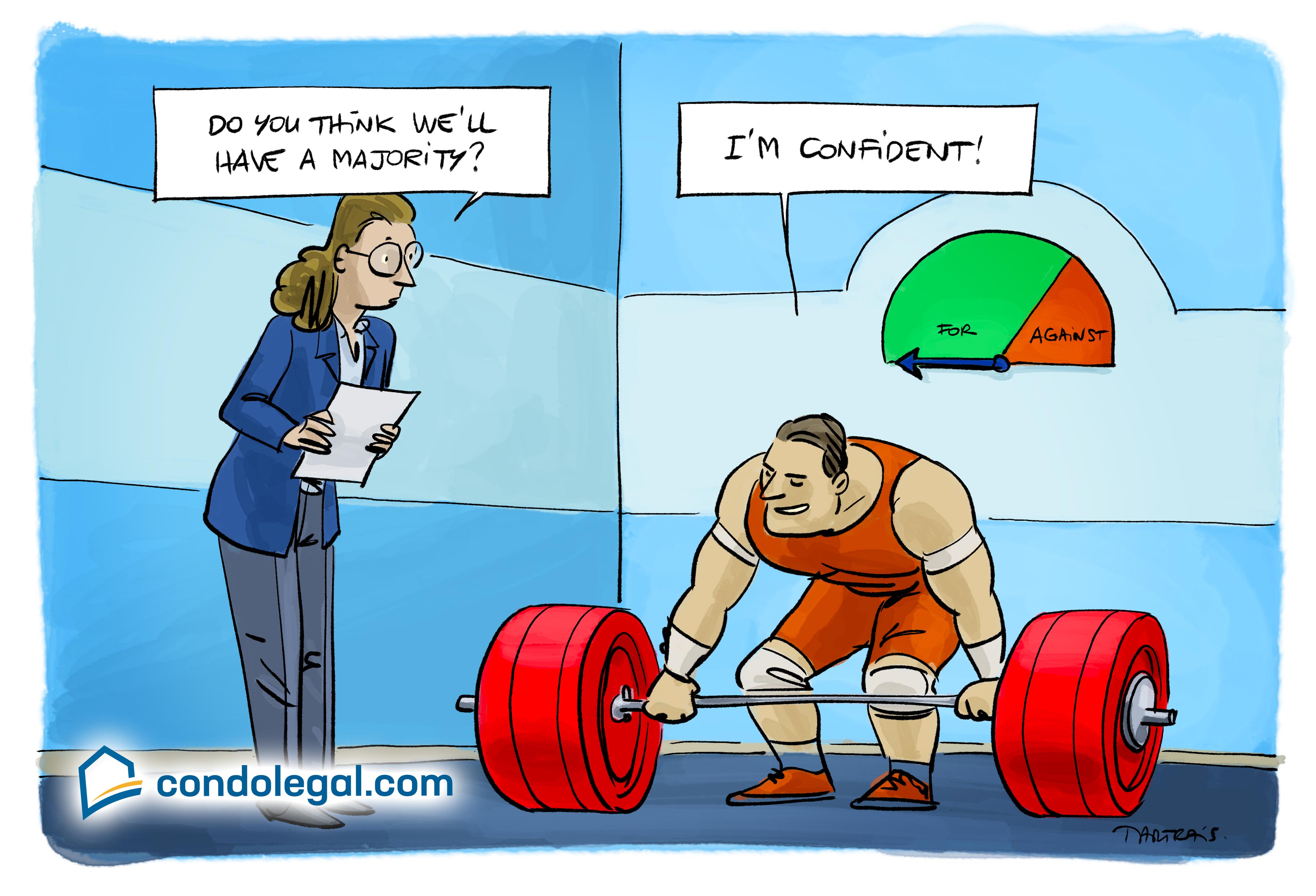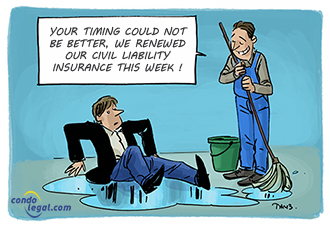21 Articles

The syndicate acts as a legal person bringing together all the co-owners of the building and not each of them individually. The Civil Code of Quebec (C.c.Q.) provides that the syndicate of co-owners arises, by operation of law, at the time of publication of the declaration of co-ownership in the Land register. With the powers devolved to it by law and exercised by its two decision-making bodies, it thus expresses the autonomy of the community of co-owners. As a result, the co-owners are third parties to…...

In co-ownership management, co-owners are tasked with making decisions on various aspects of their building that go beyond the powers granted to the board of directors. Typically, decisions within the syndicate's remit are made by a majority of the votes of co-owners present or represented at the meeting at the time of voting (more than 50%). This majority, legally referred to as an absolute majority, is required for routine decisions made by the assembly, unless the…...

The Civil Code of Quebec requires an enhanced majority for certain decisions that have a greater impact on the community of co-owners or on their individual rights. These decisions can significantly influence the daily lives of co-owners and the value of their properties. In addition, this enhanced majority is intended to temper the influence of certain co-owners who, because of the large number of voting rights they hold over their fraction, could otherwise dominate the decisions taken…...

In co-ownership law, unanimity is a rule that requires the agreement of all co-owners, not just those present or represented at the meeting of co-owners. To adopt a unanimous decision, it requires the favourable opinion of all the co-owners, no votes against, and no abstentions. Unanimity is the highest level of consensus and, therefore, the most difficult to achieve. This unanimity requirement only applies to certain co-ownerships. In addition, it is important to note that…...

Co-owners must make decisions that are essential for the life of their co-ownership, which cannot be adopted by the board of directors without their consent. To this end, the meeting of co-owners brings together the co-owners or their representatives, at least once a year. In this context, the taking of these decisions is subject to a strict framework. Meetings of co-owners make decisions by taking a vote. Any proposal submitted for adoption must be…...

The right to vote is recognized as an essential element of any modern society, and as such, co-owners cannot be deprived of it except as provided in the law. In addition, each co-owner has, in principle, at the meeting a number of votes proportional to the relative value of his fraction. However, in certain circumstances, it is provided that the co-owner may have his right to vote suspended or reduced, by the sole effect of…...

The first sentence of article 1090 of the Quebec civil Code states that "Each co-owner is entitled to a number of votes at a general meeting proportionate to the relative value of his fraction." The number of votes is related to the share of property rights each co-owner holds in the building. Therefore, the co-owner of a private portion whose relative value is higher will have more voting rights. In return, he or she will have to contribute to a larger portion…...

The relevant information of co-ownerships must be declared with the “Registraire des entreprises du Québec” (the Québec Enterprises Registrar). This declaration is intended to render accessible essential information, either to the public or enterprises that deal with the syndicate of co-owners. Furthermore, at the start-up of a syndicate, the Board of Directors must file – usually by the interim director – a declaration of registration in virtue of the Act respecting the legal publicity of enterprises. This must be done no later than 60 days…...

In general, a syndicate of co-ownership is considered a non-profit organization (NPO). As such, it benefits from a tax exemption. However, like any legal person, the syndicate of co-ownership must comply with various tax obligations, failing which it may face penalties that could have significant repercussions on the financial situation of the co-ownership and its co-owners. It is notably required to maintain strict accounting and file certain tax returns each year. Moreover, tax audits may be conducted…...

In the same way as any other natural or legal person, a syndicate of co-owners is likely to incur civil liability towards third parties, including co-owners. Responsibility is the counterpart of power: where authority lies, there is responsibility. A syndicate must therefore act with prudence and diligence, taking the necessary measures to prevent accidents normally foreseeable, ensuring that the common areas are safe and free of traps. Moreover, if his liability is engaged, this translates into the financial contribution of the…...
